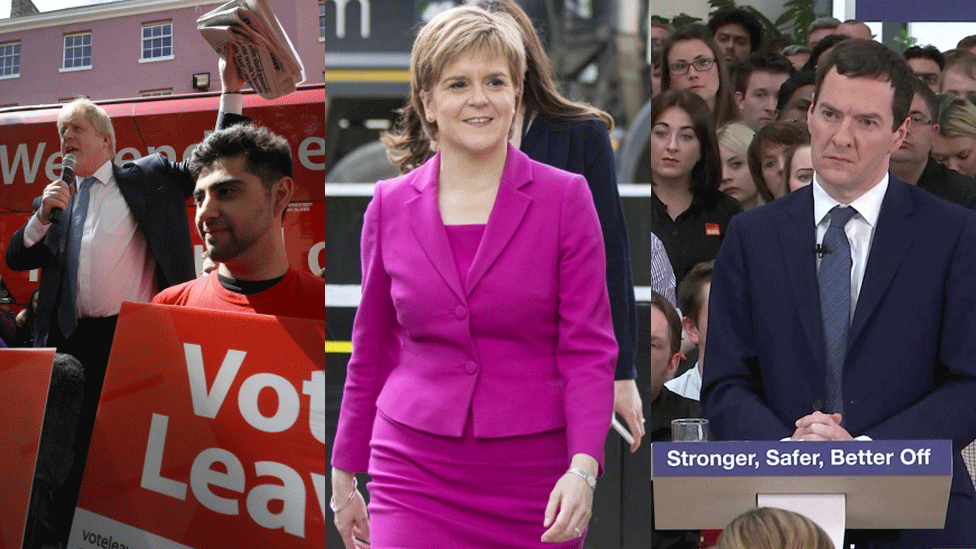Competing anxieties in the EU referendum campaigns
- Published
Are workers better off in the EU? Two sides of the debate put their case
As I drove down to Greenock this morning, the early mist evaporated sufficiently to disclose low tide in the Clyde estuary. Saturated fingers of sand stretched from the shore, with running water confined to the distant centre.
It was a reminder of natural power, a reminder that we cling to a rock careering through space; subject to tide and climate.
Glancing across the Clyde, I could see Dumbarton Rock. Dark and volcanic, a cumulus cloud of basalt. Once the centre of a Brythonic kingdom, the people speaking a form of Welsh, sheltering in their elevated stronghold until eventually prised out by invaders.
Fear of uncertainty
Like our simian ancestors scrambling up trees, our human forebears tended to seek high ground where they could. They sought safety in summits, gazing down anxiously upon potential enemies.
That search for security, that innate fear of uncertainty, persists today. We long to feel safe. We dislike dissonance. We seek comfort and assurance.
Which brings me, through a vicus of recirculation, to the purpose of my visit to Greenock.
No, dear friends, I was not rediscovering Cappielow - even though the occupants, Morton, will face my team, the once and future champions, in the soccer season ahead. Truly, the mighty have fallen somewhat.
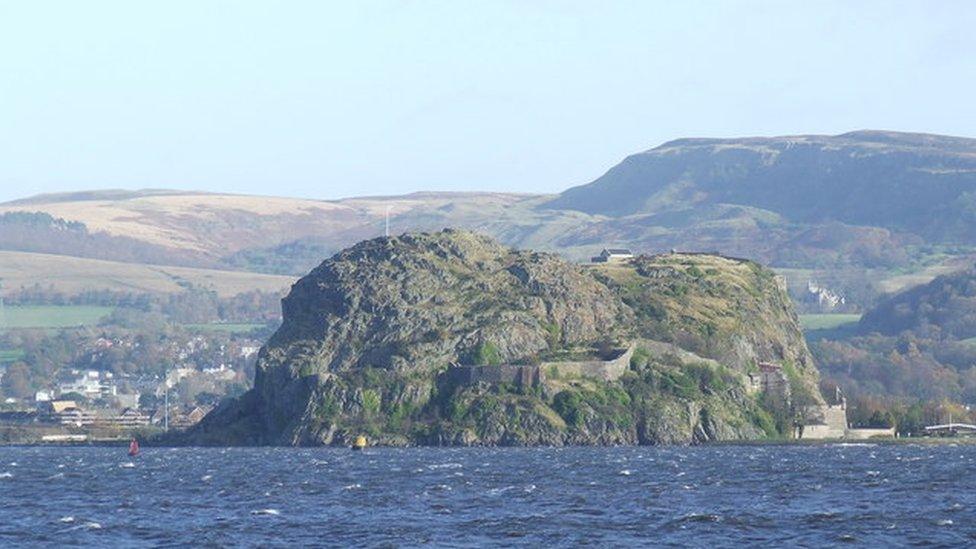
Rather, I was conducting a discussion related to the EU referendum with advocates of each option; in this case Tom Harris, the Director of Scottish Vote Leave and Grahame Smith, the General Secretary of the STUC, for Remain.
The particular topic was employment rights. We selected Greenock for the location as a town associated down the decades with work and business, sometimes buoyant, sometimes struggling.
However, the experience prompted me to think more generally about the nature of this referendum. It struck me that it differs in one crucial regard from the Scottish plebiscite of 2014. The difference is that both sides are trading substantially upon insecurity, reaching to our ancient, disquieted deeps.
The horror...the horror
Now, of course, in the 2014 poll, there was talk from both camps of the horrors which would ensue if the vote went the "wrong" way, from their perspective.
However, largely, the campaign proceeded via doubt and reassurance. The Better Together team posed challenges to the independence perspective: on the economy, the currency, defence, EU membership and the rest.
It fell to the Yes campaign to counter those challenges, to provide reassurance where that was feasible.
Again, that approach is partly in evidence this time around. But there is a measurable difference in that the two campaigns on this occasion default swiftly or instantly to competing positions which are built upon fear.
That is not, incidentally, to chide. It can be a legitimate tactic in politics, particularly referendum politics, to draw attention, where you can, to the absence of clothing displayed by your rival Emperor.
Further, neither side can be precise about the consequences of the vote. That is because they lack the ability to foretell the future, at least in the minute detail demanded by concerned voters.
(That, by the way, reminds me somewhat of 2014. Then, I well recall voters suggesting to me, even pleading with me, that there must be a basic calculation, a simple sum, which would indicate which option was correct. QED. I demurred from offering such a sum - on the grounds that it did not and could not exist. All voters had to draw their own conclusions.)
'Competing anxieties'
But back to 2016. The Remain camp want to talk largely if not solely about the economy, warning of dire and grim consequences if Britain leaves the EU and full membership of the single market for goods and services.
Quite legitimately from their perspective, they challenge their rivals to delineate, precisely, the alternative to the current arrangements which, they argue, benefit Britain and British jobs. Their argument, in short, is founded on a fear of economic uncertainty. Put more viscerally, fear of want.
In return, the Brexit camp prefer to talk largely if not solely of immigration. Another fundamental, tribal anxiety. Fear of resource competition. Fear of "the other".
These competing anxieties, of course, intersect at various points. But, more commonly thus far, the campaign has been a disjointed battle, with each side seeking to insist that their issue should predominate over the other.
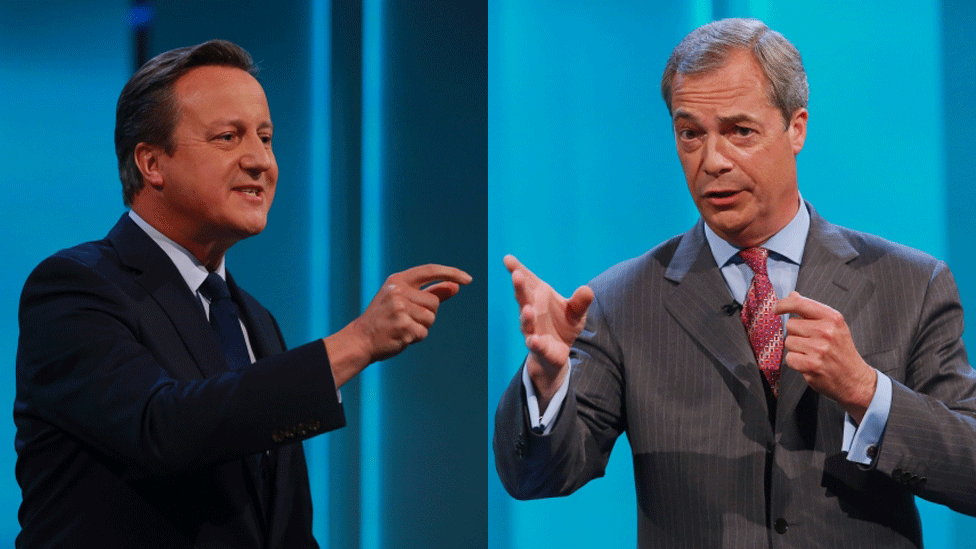
The Remain and Leave camps are each highlighting differing fears - but who is the scariest?
So Remain demand answers over the economy. Brexit demand answers over immigration. "Yes but what about…..that's all very well but the real issue is….."
There is a variant upon all this in Scotland. For a UK audience and for Unionists in Scotland, David Cameron cites the prospect of a second independence referendum as a fearful consequence of a Brexit vote.
Nationalists, of course, see things rather differently. They yearn for indyref2. But only, as Nicola Sturgeon never fails to stress, if it appears evident that the SNP and their indy cohorts would win next time around.
Which has left Ms Sturgeon in a curious position. She stresses, adamantly, vigorously and repeatedly, that she wants a Remain vote in this referendum.
Scottish independence
Partly, that is because she supports the EU and its institutions. Partly, it is because she frets that Brexit would simply engender greater uncertainty in the British and Scottish body politic - in contradistinction to an established SNP pitch for independence which is founded upon negating fear and building confidence.
Partly, too, because she believes that the time is not yet propitious for a second run at an independence referendum, with such polls as there have been suggesting that Scottish opinion has not diverged sufficiently for Ms Sturgeon's purposes from September 2014.
Equally, though, she cannot and will not disown independence, even temporarily. Further, she cannot and will not ally herself entirely with the Treasury analysis which is the basis of the Remain camp's arguments about a threat to the economy.
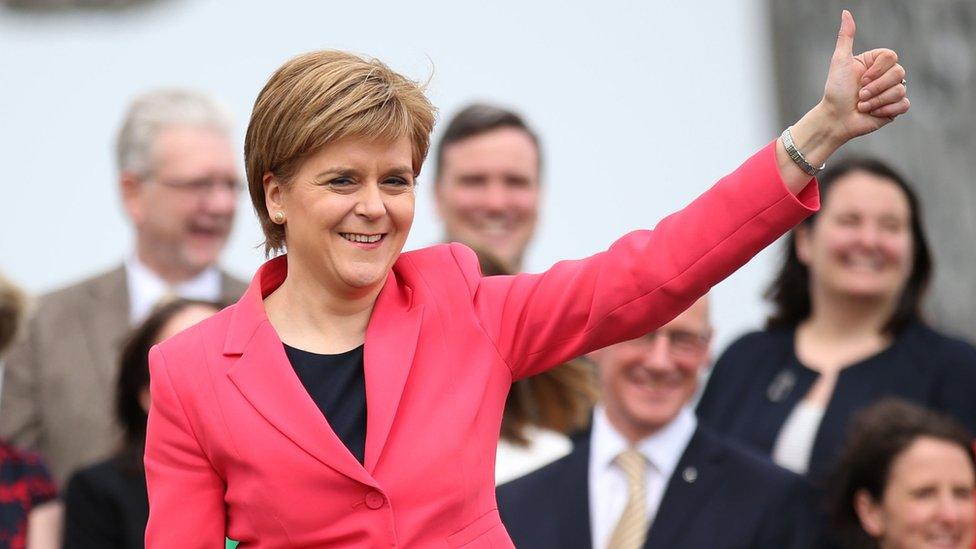
Nicola Sturgeon is campaigning emphatically for a Remain vote, which puts her in an intriguing position
How could she? Her party supporters think back to September 2014 when they regarded comparable Treasury analysis about the Union with fear and loathing.
So she reaches for the dog whistle. She tells her supporters: you don't have to buy the Treasury line to support membership of the EU. There is a viable, SNP, Scottish case for membership.
Some critics say she is playing a dual game. Seeking to bolster the Remain vote in Scotland while simultaneously undermining the same case across the UK by revisiting the independence argument and playing down Treasury forecasts.
Economy or immigration?
This, it is argued by cynics, could help foster a UK Leave vote - with Scotland opting for Remain - which might generate indyref2.
Ms Sturgeon is adamant - and I mean adamant - that such is not the case. That this is a Machiavellian scenario entirely removed from reality. That she campaigns for Remain because she wants Scotland and the UK to Remain in the EU. Still, to repeat, the subtlety involved places her in an intriguing position.
Back, finally, to the UK campaign. Or, more precisely, the competing appeals to England.
Nigel Farage suggests that British/English identity is challenged by the free movement of people implicit in the EU. David Cameron says, considering a range of issues but primarily the economy, he wants Great Britain, not Little England.
It seems probable that the winner in this contest will be the side which contrives to attract most attention, most focus, to their agenda; the economy or immigration. In short, who's the scariest?
- Published8 June 2016
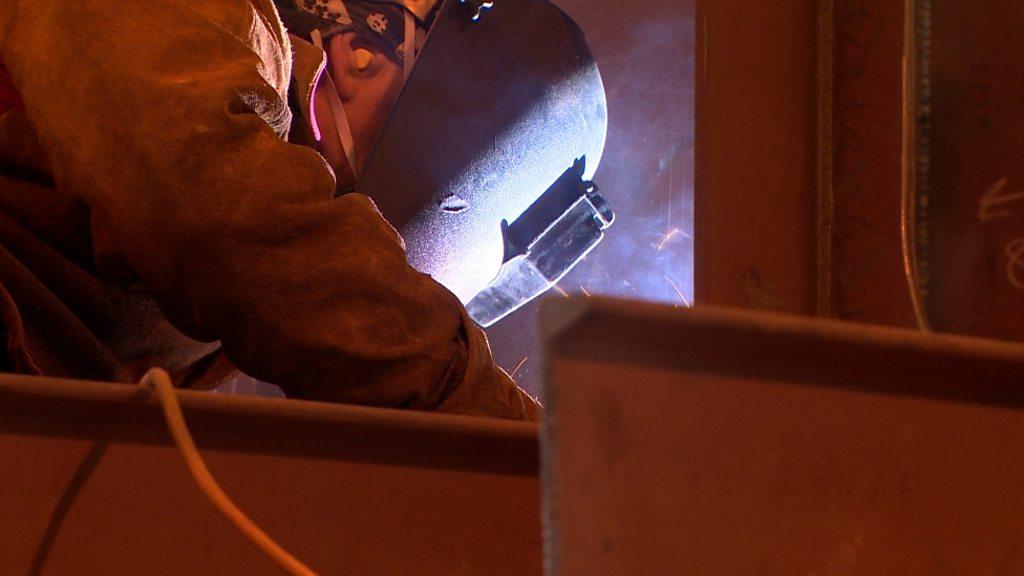
- Published8 June 2016
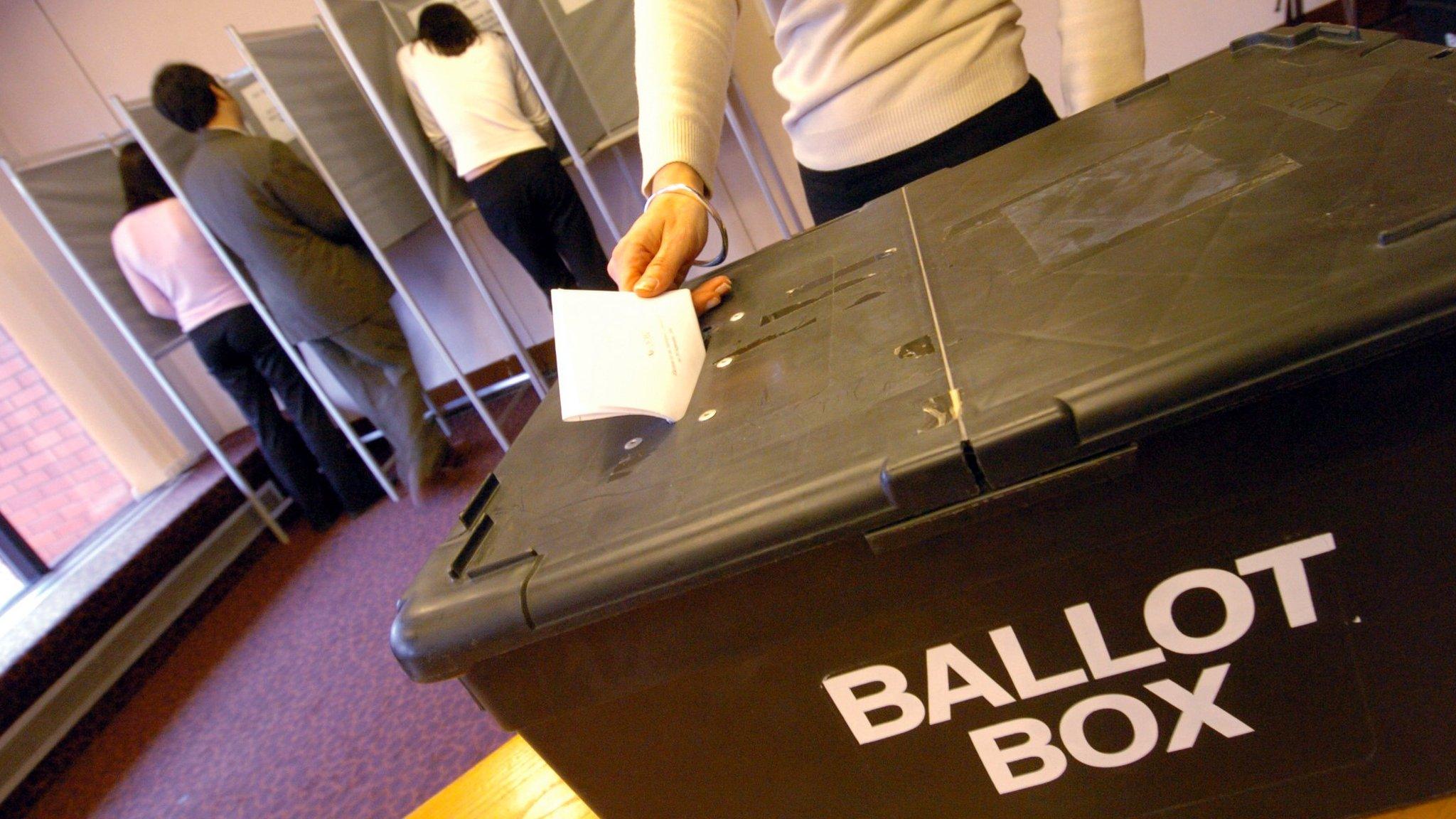
- Published8 June 2016

- Published26 May 2016
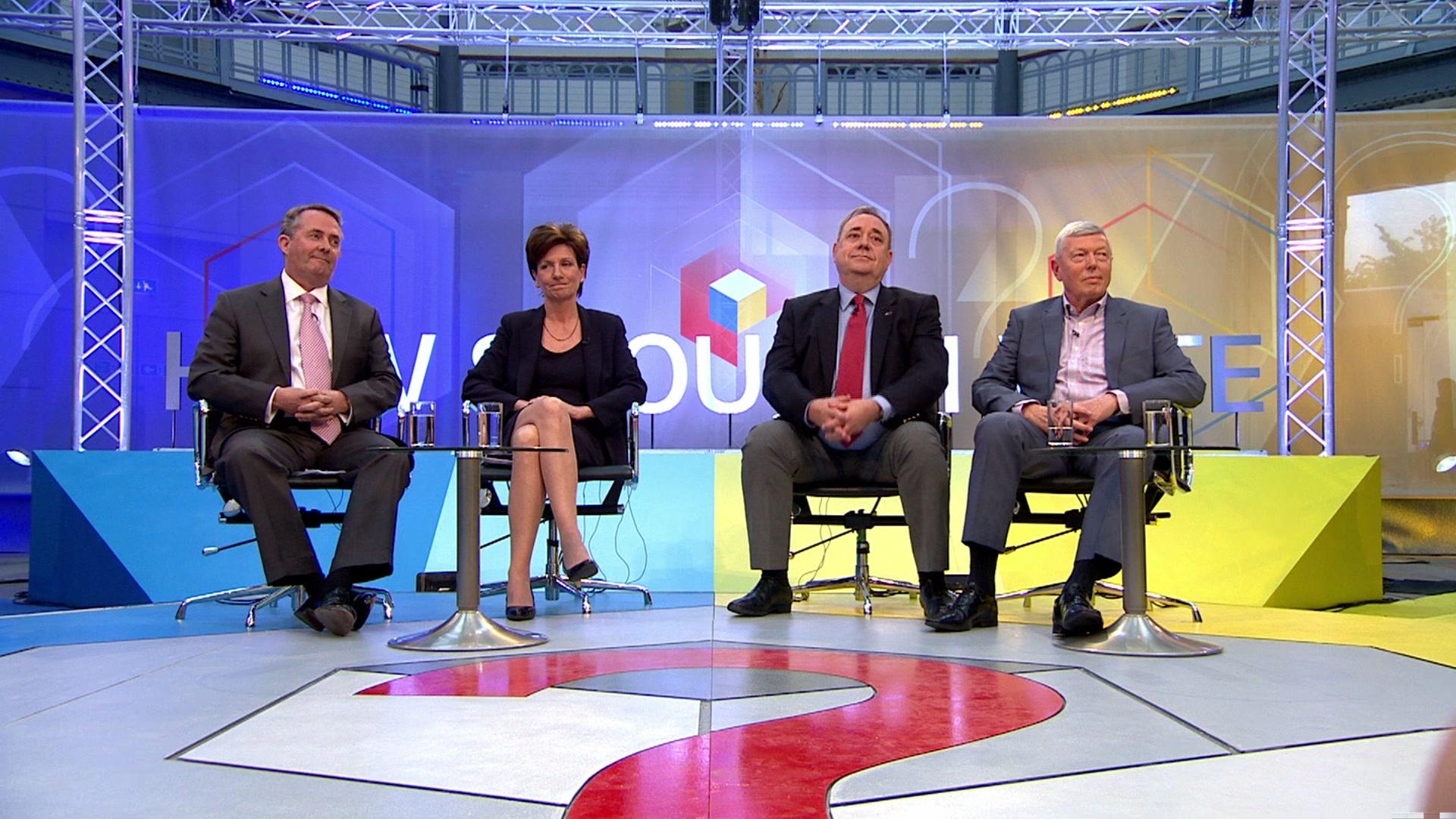
- Published23 May 2016
